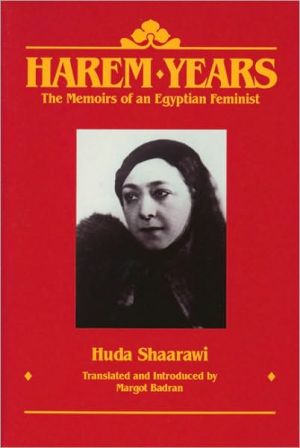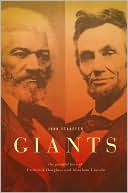Harem Years: The Memoirs of an Egyptian Feminist, 1879-1924
In this rare first-hand account of the private world of a Cairo harem during the years before Egypt declared independence in 1922, Shaarawi recalls her childhood and early adult life in the seclusion of an upper-class Egyptian household, including her marriage at age thirteen. Her subsequent separation from her husband gave her time for an extended formal education, as well as an unexpected taste of independence and a critical understanding of the price of confinement....
Search in google:
In this rare first-hand account of the private world of a Cairo harem during the years before Egypt declared independence in 1922, Shaarawi recalls her childhood and early adult life in the seclusion of an upper-class Egyptian household, including her marriage at age thirteen. Her subsequent separation from her husband gave her time for an extended formal education, as well as an unexpected taste of independence and a critical understanding of the price of confinement. Shaarawi's feminist activism grew along with her involvement in Egypt's nationalist struggle and culminated in 1923 in a daring act of defiance,when she publicly removed her veil in a Cairo railroad station. Publishers Weekly Shaarawi, an early leader of Egypt's feminist movement, was the daughter of an upper-class Egyptian and a Turkish Circassian woman. Raised in a haremthat area of homes where the women and children in wealthier families were secludedShaarawi observed bitterly that her younger brother was treated better and taught more than she. At age 13 she was married, against her wishes, to an older cousin who already had a family by a ``slave-concubine,'' with whom he continued to live at intervals during his marriage. In addition to noting such injustices, Shaarawi also offers a touching account of growing up in the Middle East at the turn of the century and of the peopleparticularly European women living in Egypt and Egyptian women educated in Europewho helped her to develop a vision of a more just society. Badran's epilogue, quoting extensively from Shaarawi's narrative, covers the stirring struggle for independence from Britain and the beginnings of a women's movement in Egypt following World War I. (May)
\ Publishers Weekly - Publisher's Weekly\ Shaarawi, an early leader of Egypt's feminist movement, was the daughter of an upper-class Egyptian and a Turkish Circassian woman. Raised in a haremthat area of homes where the women and children in wealthier families were secludedShaarawi observed bitterly that her younger brother was treated better and taught more than she. At age 13 she was married, against her wishes, to an older cousin who already had a family by a ``slave-concubine,'' with whom he continued to live at intervals during his marriage. In addition to noting such injustices, Shaarawi also offers a touching account of growing up in the Middle East at the turn of the century and of the peopleparticularly European women living in Egypt and Egyptian women educated in Europewho helped her to develop a vision of a more just society. Badran's epilogue, quoting extensively from Shaarawi's narrative, covers the stirring struggle for independence from Britain and the beginnings of a women's movement in Egypt following World War I. May\ \








